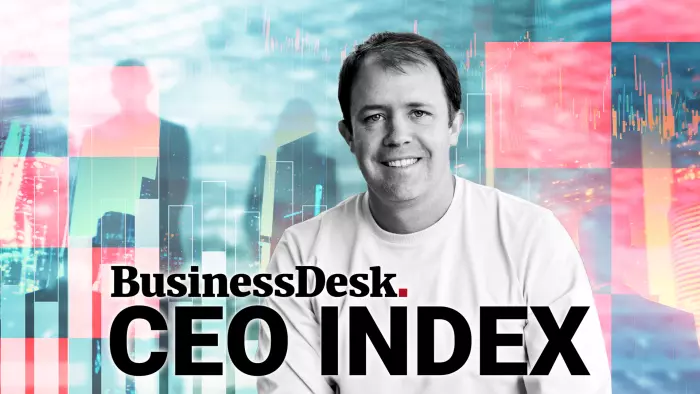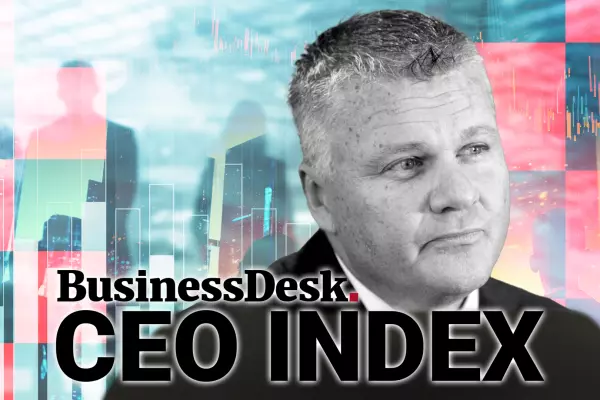Robbie Paul is in the enviable position of never having applied for a job, having started as an intern at New Zealand’s first angel network, Ice Angels, in 2008 and becoming chief executive of its successor company, Icehouse Ventures, when it launched in 2019.
Icehouse Ventures claims to be the country's most active venture capital firm, having invested $600 million to back a range of ambitious founders in software, deep tech, fintech and clean tech from seed stage to global companies.
Notable portfolio companies include Halter, Substack, Tracksuit, Sharesies, Dawn Aerospace, Nuro, and OpenStar.
High-pressure world
Paul says that his long education at the company gives him a rare take on the pressures of the venture-capital world to support founders and the 2000 Icehouse investors.
“I probably have thicker skin than others on the team,” he says. This is a function of having spent more time at Icehouse and being on the receiving end of more criticism than most, he reckons, though he says he does get positive comments as well.
BusinessDesk tech columnist Peter Griffin says Paul has been instrumental in helping founders to build resilience and in trying to make the high-pressure world of early-stage companies a healthier environment.
“He has created a real community, too, which has seen founders recycle capital into a new generation of startups.”
NZ's global impact
Robbie Paul is a shortlisted finalist in the private sector category of the inaugural BusinessDesk CEO Index.
He garnered praise from our independent judges panel: “Robbie Paul's belief in the impact New Zealand and New Zealanders could have on the world is something I wish we could bottle and have every Kiwi drink,” said one.
BusinessDesk asked Paul for his experience in dealing with the five criteria in the CEO Index: vision, impact, innovation, resilience, and influence.
Vision: Paul says his vision is for Icehouse Ventures to be a transformative investor in transformative Kiwi companies.
“Success will see us investing billions into thousands of New Zealand startups, enabling millions of Kiwis to be financially aligned to the success of New Zealand’s most ambitious entrepreneurs, and supporting our companies to expand the opportunities and possibilities for all New Zealanders.”
When conveying his vision to his team and stakeholders, Paul has drawn inspiration from startup founders. “It was on a hike with Levi [Fawcett], the CEO of Partly, where he enlightened me about the importance of consistency; that if you are not starting to feel repetitive, you are not communicating your vision enough.”
Paul asks his team to articulate their own version of the vision. He says this brings the benefits of better buy-in and more nuanced variations of the vision, which can resonate with more team members.
Impact: Success for the Icehouse Ventures CEO, in terms of impact, is when founders, investors, and his team are experiencing belonging, aspiration, purpose, attribution, triumph, and freedom.
“If they are experiencing these, then there is a high probability the business is growing and generating a lot of impact,” he says.
For a team member to have aspiration, for example, they must be optimistic about what is possible and excited to make it happen.
“They must feel empowered and be aligned to the mission. They likely need to have seen examples where stretching for something was worthwhile,” he says.
Innovation: Being surrounded by entrepreneurial innovators like Brooke Roberts and Sonya Williams from Sharesies and Stefan Powell of Dawn Aerospace is an inspiration, Paul says. “Watching them push boundaries has helped us a lot.”
At the same time, good things take time, he says. “My primary goal is to create an environment and balance sheet that encourage long-term missions by the team.”
This approach can be thankless in the short term, but can create insurmountable advantages and compounding returns, Paul says, “because, generally, others in the market don’t have the equivalent patience or resilience”.
Resilience: Paul is no stranger to seeing company failures and crises. “Out of 375 investments, 82 companies have failed. Many others – even the super-successful ones – have danced with failure,” he says.
The failure of Supie, the online supermarket, was one of the more visible crises. Icehouse had 0.17% of its funds invested in Supie.
Paul fronted the media quite often during the breaking story, which attracted a lot of interest. He says the most important lesson he learned was to communicate quickly, extensively and transparently.
“In our case, we need our shareholders, board, investors, and community to hear directly from us when things are going wrong. We want them to know as much as possible as soon as possible.”
Influence: Paul hopes his influence is perceived as someone who attracts and retains team members who build something remarkable together.
“The goal is not to set a vision and then hire people to pursue it,” he says. “It is to attract great people and empower them to expand a vision.”
A good book: The Gambling Man: The Wild Ride of Japan’s Masayoshi by Lionel Barber. Paul says it tells the story of Masayoshi Son's insatiable ambition in building media tech giant SoftBank.
Sliding doors: Having worked with 2000 high-net-worth investors, Paul has seen many get to the fork in the road where they could afford never to work again. None, he says, have taken that path.
“My conclusion is that the journey is the reward and if I were to do something else, it would have to be an aspirational journey where it is possible to experience belonging, purpose, freedom, and triumph.”
● Read more of the BusinessDesk CEO Index here.









